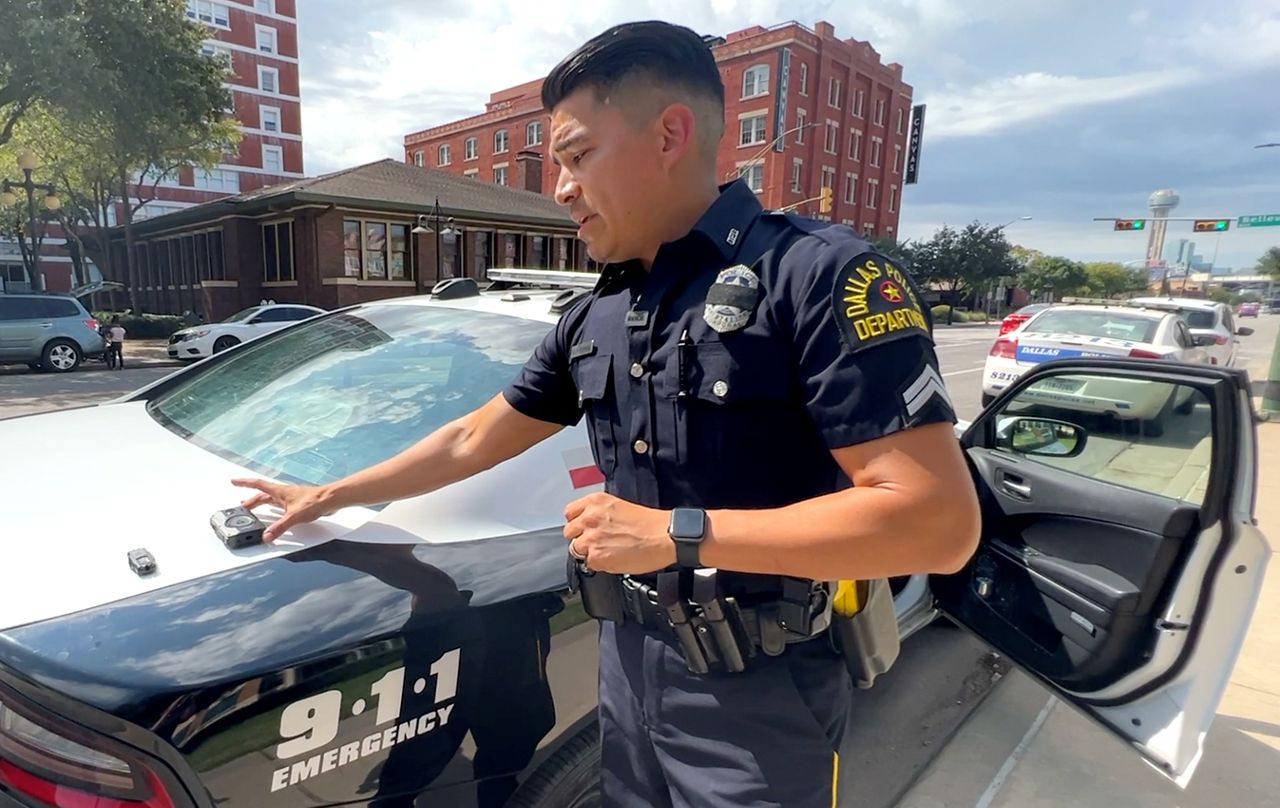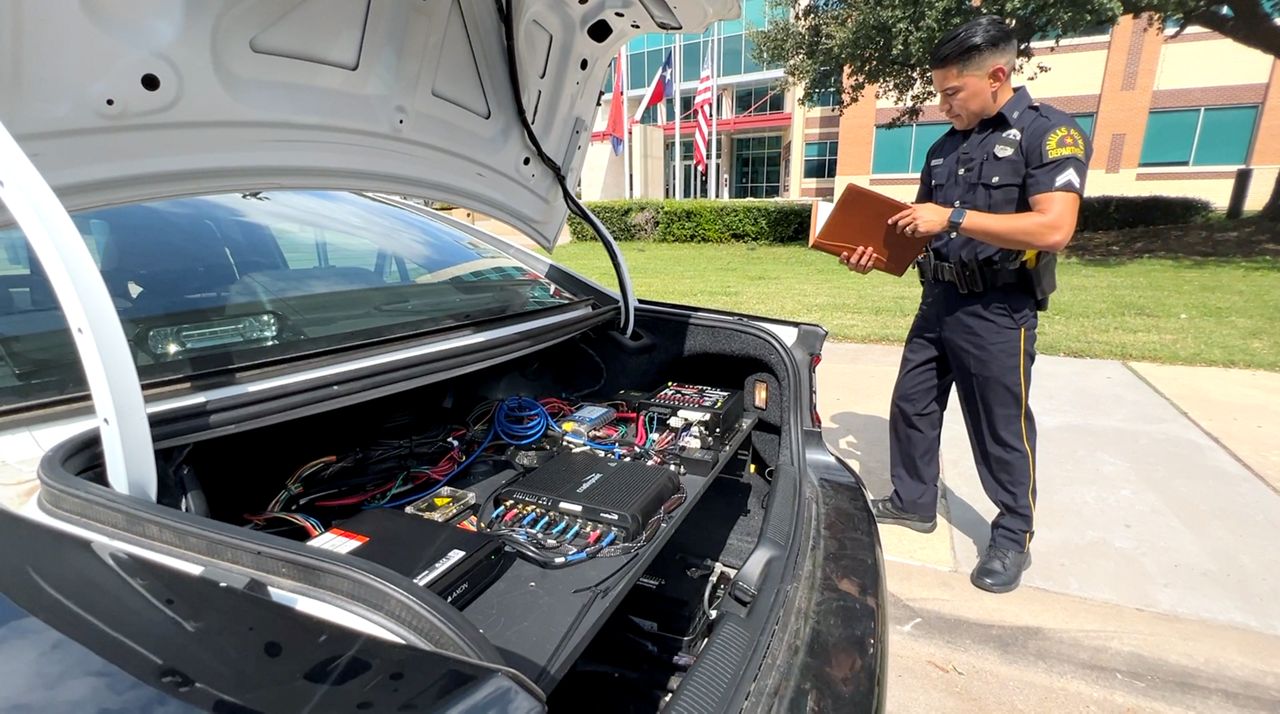DALLAS — Dallas City Council approved its largest budget plan of $4.35 billion for the next fiscal year, $500 million more than last year. The budget is boosted by a $355 million chunk of federal funding from the American Rescue Plan Act and local assistance grants.
Dallas Police will get about $567 million overall in the coming fiscal year, with that money going toward getting 250 more officers on the streets, updating equipment in patrol cars and for the officers themselves.
“As the city grows, so do the needs of our department. We need more officers answering calls, we need more detectives investigating their cases, and we need all those officers, just in general, building strong relationships with the community. And that's just one side of it. We're also going to need more patrol vehicles, more equipment, more body cameras, and most importantly, programs like the RIGHT Care team,” said DPD Senior Cpl. Brian Martinez.

The Dallas Police Department is upgrading to Axon 3 body cameras that activate when a firearm is unholstered, along with every other officers’ cameras that are within 30 feet of that gun. The cameras also come with live-streaming technology, allowing an officer’s supervisor to watch what’s happening in the field, in real time. The cameras also come with GPS, something Martinez says is invaluable.
“When an officer has this on his chest, we'll be able to pinpoint where the officer is at when he’s maybe running in an alley, or maybe in a large complex where it's very hard to find an officer. That GPS is that detailed on being able to locate an officer,” Martinez said.
DPD is also outfitting patrol units with a new Axon hard drive with 4G, meaning officers can upload video remotely from a scene.
"So we no longer have to go to the substation to upload our video. Another great feature of this hard drive, it does really well in heat. So at times during the very hot days, sometimes we have to wait till these systems cool off before they start functioning,” Martinez said. "We will attempt to put this in every single vehicle going forward. We want every vehicle to have this new software, this new system going on.”
The millions of dollars for DPD will also go toward new front cameras with a wider lens which records in 1080p HD and activates when the lights come on, along with other officers’ cameras within a 30 feet radius.
"It will allow the officer to have less human error. What I mean by that is, at times, officers may have to jump out of the vehicle immediately if something's happening, and we want to eliminate the human error out of it — the officer having to activate the camera by doing two clicks. Instead, a simple flip of the switch on lights or opening the back door will activate those cameras, and everybody in the scene,” Martinez said.
Martinez says along with reducing human error, the goals for the department are to decrease response times to calls, and overall lead by example.
“It may not go back to beat officers, but what we're trying to strive for is to have some type of relationship with community a better relationship. So that way we can educate them and to educate us as well on what's been going on in their city,” Martinez said “We want other departments to follow suit. And I believe Chief Garcia is doing a great job with that right now, because that's what the city needs and that's what they deserve. The city does need a department who is the example of what every other department should be like or follow.”

Before the City’s budget was approved, there were some contentious arguments regarding police overtime funds. Last year, $7 million in the overtime budget was cut and diverted, as calls to “defund the police” flooded city governments across the nation. $10 million was added to PD’s overtime budget due to an amendment before the vote was finalized. The chairman of the Community Police Oversight Board, Jesuorobo Enobakhare, Jr, said the cutting of $7 million was hardly “defunding” DPD.
“Sincerely, that's not defunding the police department. Because if the police department needs to pay officers to work overtime, guess what, they're going to get that $7 million back. We see where they got the $10 million back,” Enobakhare said. "But when you're talking about reducing the budget, taking overtime pay away is not the way to reduce a budget."
Enobakhare said he wanted to see more of a focus on oversight, which his officer is tasked with. He said he’s disappointed the office couldn’t even receive 1% of the police budget.
“There wasn't a significant increase in funding for the Office of Community Police Oversight. I think with three employees, it’s not really adequate staff for the office to not only handle the volume of complaints that are received, but also as far as duties just reviewing such things as the general orders and providing updates and reforms for those orders. It takes manpower to do those reviews,” Enobakhare said.
He and his small staff are committed to having a watchful eye on the Dallas Police Department, fielding complaints of police misconduct transparently.
"We don't want the Office of Community Police Oversight to just be an office for complaints. We also want that office to be the office that's overseeing, that's looking into these issues so that they can be the ones to share the transparency so that the civilians and community know what's really going on,” Enobakhare said.
Police reform is something that Enobakhare is passionate about, which is what attracted him to the position of chair of the oversight board in the first place. He said police reform and budget increases are not "either or,” meaning just because there was a budget increase doesn’t mean police reform can’t happen as well.
"We have a police monitor, we have police, and we have a city manager, and we have to make sure that they stay focused on reform. We can't just leave it to the others to make those decisions. We, as in myself and the rest of the citizens of Dallas, we have to push and make sure that we keep our foot on the pedal, and we're going to push for the reforms that we feel need to be made within the Dallas Police Department,” Enobakhare said.
Outside of personnel and equipment expenses, the DPD budget is also being invested into the active bystander for law enforcement (ABLE) training, which Enobakhare Jr says will create a duty to intervene culture in DPD. $2 million was added to the RIGHT Care team, expanding it from five to 10 teams to mitigate behavioral crises and avoid unnecessary arrests when it comes to mental health issues. DPD has a goal of answering 90 percent of 911 calls within 10 seconds, and addressing citywide speeding and unsafe drivers by investing $500K in traffic calming and $200K for a street racing remediation pilot project.
You can read more about the city’s FY 2021-22 budget here.



